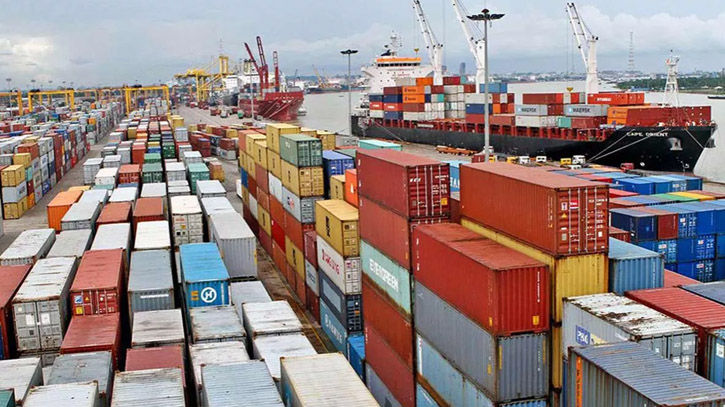
Photo: Collected
Many people in Bangladesh believe that the interim government has faced challenges in managing the rising prices of essential commodities compared to the previous Awami League (AL) government, says a survey conducted by Voice of America (VoA) Bangla.
The survey, involving 1,000 participants aged 18 and above from eight divisions across the country, revealed that 44.7% of respondents believe the government has performed poorly in controlling the prices of essential commodities such as rice, fish, vegetables, eggs, meat and oil.
Survey Results
Among the people polled, 23.8% believe the current government is performing better than the previous one. Around one-third of the participants-30.8%-feel that the situation has remained unchanged.
A gender disparity was noted in the survey regarding opinions. While 31.3% of males felt the interim government was doing better than the previous government, only 16.3% of females shared this view. A total of 41.2% of females believed the situation had remained the same, compared to just 20.3% of male respondents.
The survey sample was representative of Bangladesh's demographics, with equal numbers of male and female respondents. Besides, 92.7% of the participants identified as Muslim. Over 50% of the participants were aged under 34, and nearly a quarter lived in urban areas.
Severe Financial Strain
Hiren Pandit, a resident of Mirpur and programme coordinator at a private organisation in Dhaka, had been living comfortably with his four family members. But, the year 2024 has brought severe financial hardship.
"We are in a suffocating situation due to the rising prices of goods," Pandit told VoA, adding, "Rent has increased, the prices of everyday items have soared, and things that used to cost Tk 140 have risen by Tk 30."
Inflation
Inflation stood at 9.72% in June 2024, rising to 10.87% by October. This period has witnessed political turmoil in the government. However, inflation did not suddenly spike due to political instability in July 2024, even though it reached its highest point of the year-11.66%-that month.
Inflation had fluctuated between 5% and 6% in 2020 and 2021. But, from mid-2022, inflation began to rise, crossing 9% in 2023 and nearing 10%, according to Bangladesh Bank data.
After the interim government assumed power in August, inflationary pressure on essential commodities persisted. While inflation decreased slightly in September, it climbed again to nearly 11% in October.
Economists' Analyses
Economists have blamed both political and natural factors for the situation. "Bangladesh's July-August protests and the subsequent government fall disrupted the supply chain, which also affected global supply systems, leading to internal shortages," said Golam Moazzem, Research Director at the Centre for Policy Dialogue (CPD).
Government Efforts to Tackle Inflation
Since taking power, the current government has implemented several measures aimed at controlling inflation, such as reducing import duties on essential goods like rice, potatoes, sugar, oil, and onions.
The margin for opening letters of credit (LCs) for various imports has been halved, making imports easier. Additionally, market monitoring and surveillance of key players in the supply chain are being conducted.
Pressure on Employees
The CPD's Moazzem observed that although the interim government's statistics are more transparent and acceptable than before, the measures taken so far have lacked innovation. "These initiatives are similar to previous ones; I do not see anything particularly new. I am disappointed because I have not yet seen any dynamic initiative to manage inflation and the supply chain," he said.
Inflationary pressure is hitting salaried employees hard. Referring to Hiren Pandit, Moazzem noted that previously, 60-65% of his monthly income was spent on rent and food. Now, this figure has risen to 85-90%.
"Everything I earn is being spent, and there is no savings anymore. Life has become almost unbearable for us," Pandit said, adding, "Earlier, we would occasionally have fruits, but now that has stopped. Mutton, which we could afford once or twice a month, has also been cut."
Bank Rate Hike
Since 2022, Bangladesh Bank has gradually raised interest rates to reduce demand and control inflation. In October 2024, the bank rate was increased to 10%.
Moazzem believes that Bangladesh's agricultural market is "sensitive and political" because the supply system can place political pressure on the government.
"Therefore, the government tends to act quickly and show results, but reforms in this market, driven by political motives, are unlikely to yield positive results," he said.
One of the proposed market reforms involves targeting five or six products for supply chain management improvements over a three-year period. "If these reforms are regularised, formalised and digitalised-so that all transactions are monitored-we will see results," he said. "But we'll have to wait for these results."
Messenger/Tareq








